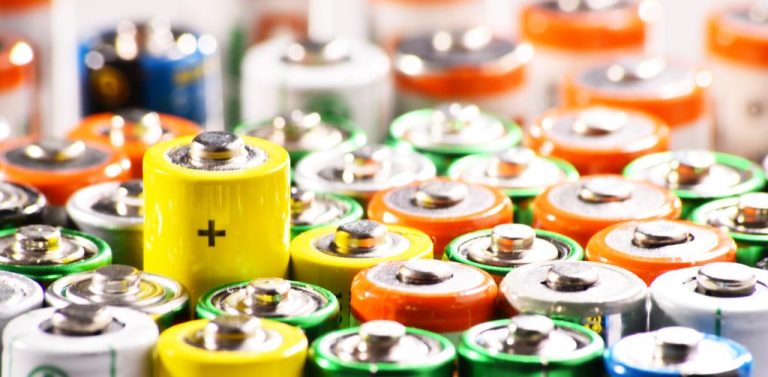Ascending trend. The energy balance is rather poor and the mini power plants are also expensive. We can all contribute to a better environmental balance.

Recycling rate too low
More and more devices require mobile energy dispensers. In Germany alone, the consumption of device batteries or finger batteries rose to 65,368 tons in 2020. Compared to the previous year, this is an increase of 9,463 tons or 16.9 percent.
The rules for the disposal of batteries are in the Battery Act (BattG). So that used rechargeable batteries and batteries (non-rechargeable) do not end up carelessly in the rubbish bin, retailers are obliged to take them back free of charge: Regardless of the type, whether block battery, button or round cell – “return after use” always applies.
In fact, this has so far been the case for less than half of all old batteries. Only 45.6 percent of the disused mini power plants came back in 2020. In 2019 it was 52.2 percent. Germany has thus just exceeded the EU-wide collection target of 45 percent. Quite obviously: Too many old batteries are not recycled or properly disposed of.
Battery power is expensive
Non-rechargeable batteries in particular are inefficient, as the Federal Environment Agency has determined. Batteries require 40 to 500 times more energy to manufacture than they make available later when used.
The situation is similarly unfavorable with regard to costs. The Federal Environment Agency clarifies this with a sample calculation: A kilowatt hour (kWh) currently costs around 0.35 euros from the socket. For the same amount of energy (1 kWh), provided by batteries, you would have to spend around 77 euros with AA batteries, for example (AA battery: 2600 milliampere hours, 1.5 volts, 0.30 euros each).
The comparison is even more disadvantageous when the smaller AAA batteries are used (1250 milliampere hours, 1.5 volts, 0.30 euros each): Here you would have to spend around 160 euros.
note the expiration date
Electricity is generated in the mini power plants through chemical reactions. However, this does not work indefinitely – batteries age and constantly lose some of their original power through self-discharge. An expiry date printed on the pack or the battery provides information on how long the manufacturer can guarantee the quality.
These three tips can help you:
In order not to get already weakening energy dispensers, this date should be at least four years in the future when you buy it.
Batteries should be stored cool (between 10 and a maximum of 25 degrees), dry and preferably in the original packaging.
Batteries of the same type and with the same state of charge always belong in the device.
If batteries touch the poles or come into contact with other metal parts, this can lead to faster discharge or even a short circuit.
Tips for correct disposal
When your batteries are dead, it’s important to dispose of them properly. The consumer center NRW gives tips:
All depleted batteries and accumulators must be returned to the seller. This applies regardless of markings and inscriptions. Household waste is an absolute taboo for the polluted energy dispenser.
Button cells, rechargeable batteries and the like are returned free of charge, even if you don’t buy any new energy cells. Retailers have to take back batteries of all brands, but only the types that they have or have had in their range.
Smaller devices with built-in batteries or rechargeable batteries – such as wristwatches – can be handed in at municipal collection points for old electronic devices or sent back to online retailers free of charge.
When making a purchase, customers in the shop must be informed about the obligation to return the goods.
Batteries and accumulators contain valuable raw materials such as nickel, zinc or lithium. But also toxic heavy metals, caustic alkalis and acids; therefore caution is required. Up to 90 percent of the materials in batteries are recyclable, depending on the method.
Tip: Before you dispose of it, you can use a measuring device to test whether the residual voltage is still sufficient for devices that don’t need much “juice” – for example a small alarm clock. This saves money and protects the environment.
The advantages of rechargeable batteries are clear
The Federal Environment Agency has another clear recommendation: If you only use devices stationary, you should operate them via the socket. You rarely need household appliances such as vacuum cleaners, drills, razors or hand blenders outside of the reach of sockets. As a rule, mains-operated devices without a battery are more powerful and cheaper.
Batteries are the solution for grid-independent energy. Multiple recharging reduces the inefficient nature of the energy supply. Depending on the type and handling, batteries can be recharged 200 to 1,000 times before they reach the end.

Conclusion
Rechargeable batteries and batteries are expensive. You should therefore only use them if mains operation is not possible. Rechargeable batteries have a clear advantage over batteries. If the mini power plants have used up their power, you should definitely dispose of them at the dealer.

